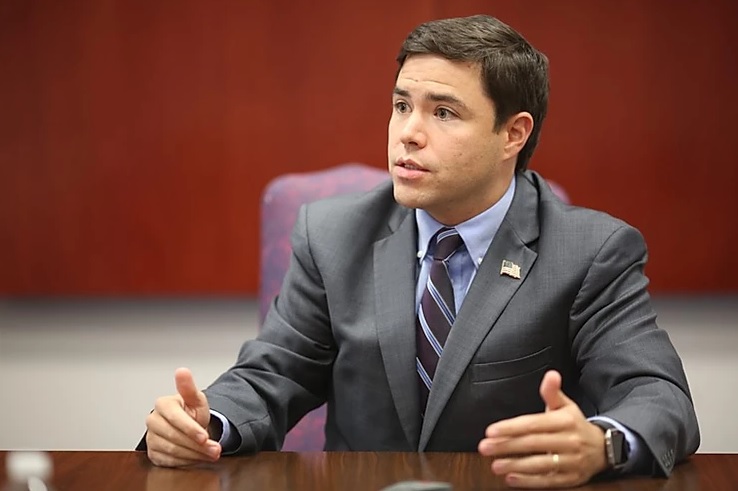Public education leaders throughout Orange County are defending Common Core, as Republican lawmakers in Raleigh are moving to replace it during the upcoming short session of the General Assembly.
“I think one of the sad things is, lot of it’s being portrayed as the Federal Government bringing this down upon us, and they get into a ‘states-rights’ kind of argument, which it wasn’t meant to be.”
That’s Chapel Hill-Carrboro City Schools Superintendent Tom Forcella, talking to WCHL last Thursday during the 2014 Community Forum about controversy surrounding Common Core State Standards for math and reading.
Earlier that day, North Carolina Representative Graig Meyer, a Democrat who represents Orange and Durham Counties, had been in the state house, listening to Republicans state their intentions to replace Common Core with a new set of standards.
Those would be determined by a 17-member advisory commission, mostly selected by Republican House Speaker Thom Tillis, who is running for U.S. Senate; and North Carolina Senate President Pro Tempore Phil Berger, who’s also a Republican.
“What we saw was a continuation of the pendulum-swing backlash where Republicans in the General Assembly dismissed expertise from educators, and dismissed the opinions of Democrats and said, we’re just going to throw the baby out with the bath water,” says Meyer. “And as of July 1st, if this legislation passes, there will be no standards or curriculum for the state of North Carolina, and that seems like a horrible way to do business.”
Superintendent of Chapel Hill-Carrboro City Schools Tom Forcella says that one of the major misconceptions about Common Core is that it’s a federal-government intrusion into North Carolina schools.
“Common Core was created, not by the federal government, but rather by a group of governors,” says Forcella. “They proposed having a Common Core set iof standards that, potentially could be used nationwide, rather than each state creating their own standards, and there’s no way to compare. And also, looking at the state standards, and having some of them be rigorous.”
Forcella says Common Core “raises the bar” and provides “an equal playing field for all children.” He argues that it instills deeper thinking skills in students, instead of just getting them to memorize information for tests and then forgetting about it.
Orange County School Board Chair Donna Coffey says she also supports Common Core.
“We live in a society today that continues to grow increasingly mobile,” says Coffey. “And this allows students to more easily move from one district to another, without losing a lot of in-depth curriculum that they nay have lost in other situations.”
Another proponent, Chapel Hill-Carrboro Association of Educators President Chuck Hennessee, says it’s important to consider how many gifted English-speaking students there are in India and China.
He agrees with the idea that Common Core helps kids in the U.S. compete better globally.
Hennessee says he also understands that change of this kind causes anxiety, and even resentment.
“You’re going to get some pushback,” says Hennessee. “We also have to be very frank about the logistics of the fact that when this came through, it was an attempt to deal with the funds coming through from Race to the Top. Again, we’re dealing with federal funds, which we know is going to be a political hot button.”
North Carolina won a federal Race to the Top grant in 2010, and has used nearly $400 million to make education improvements and implement Common Core throughout the state. The Common Core standards have been used in North Carolina classrooms since 2012.
Hennessee recalls that when the funds came in through the state Department of Public Instruction, they came in quickly. For that reason, he and Forcella agree that it initially caused a strain on teachers and administrators.
“Part of the problem with staff is that it was too much,” says Forcella. “I was very quick. And we were just scrambling to re-tool and re-train our teachers. “
The process took one year, and a lot of work, Forcella recalls. Normally, something on that scale would have taken two or three years.
If Common Core opponents in the General Assembly have their way, teachers will have to start over again with a new set of standards, as soon as those are agreed upon.





Comments on Chapelboro are moderated according to our Community Guidelines